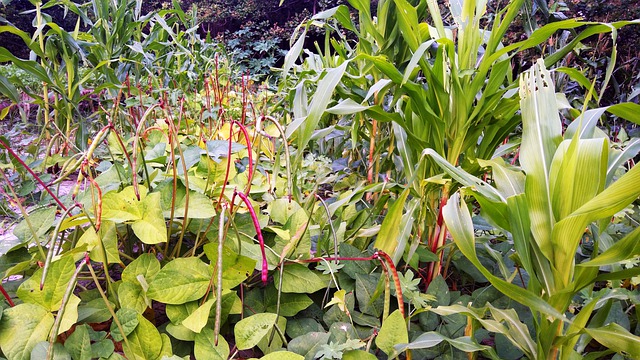INTRODUCTION
Pakistan is an agrarian country, where the demand for food is increasing because of the growing population. Agroforestry is an agriculture practice that has various ecological, social, and economical advantages. You may like to read Sustainable Agriculture Practices and their Advantages.
AGROFORESTRY
This term is defined as a unit of land use management systems and practices. In agroforestry usually shrubs, trees, bamboos, etc are cultivated as agriculture crops surrounding pasturelands/farms.
Check out: Rooftop Vegetation and Vertical Gardening – Solution to Self-Sustenance
IMPORTANCE OF AGROFORESTRY IN PAKISTAN
Agroforestry can play a significant role in the production of crops in Pakistan. The country has extremely varied climatic zones. Punjab and the Sindh provinces of Pakistan are famous for agricultural products and services. The climate of these regions is mostly categorized as arid or semi-arid.
The changing climate is influencing the net crop productivity [For more info:The Impacts of Climate Change on Agriculture in Pakistan]. Other factors that are stressing crop yield are human activities such as urbanization, inadequate land-use practices, deforestation, soil erosion and degradation, waterlogging and salinity, etc. The country already has less forest cover area. In such a scenario, Pakistan needs sustainable agriculture practices. Agroforestry has many benefits that can prove to be beneficial for Pakistan.
- Economical Benefits: It can provide economical benefits because farm revenue generated by adopting agroforestry is higher than monoculture practices.
- Food Production: Agroforestry can provide sustainable food resources. For instance cultivation of trees would supply marketable food like nuts, fruits, etc.
- Environmental Benefits: Pakistan is among the most affected countries by climate change. Agroforestry has environmental benefits that include protection from soil erosion, desertification, land pollution, etc. Check out: Types Of Soils In Pakistan And Their Location And Properties.
- Ecological Benefits: The ecosystem could be improved in Pakistan due to the adequate use of natural resources in agroforestry. The country is in dire need of climate change adaptation strategies. Agroforestry can help against climate change by understory crops.
- Carbon Sink: Forests act as carbon sinks. Vegetation cover is increased by agroforestry and it can help mitigate the effects of global warming by absorbing carbon from the atmosphere. Fuelwood/timber production from agroforestry will reduce deforestation.
You may also like: Sustainable Forest Management – Methods and Importance
APPLICATION OF AGROFORESTRY IN PAKISTAN
Agroforestry can have multiple benefits but this land use practice is facing constraints in its application in Pakistan. The farmers in Pakistan are not welcoming towards agroforestry. The reasons include lack of personnel, financial funds, markets, etc. People are not educated enough to welcome new techniques. Poor farmers are afraid of losing their land to establishment due to the cultivation of trees. The absence of technical assistance is a key hindrance that restricts the application of agroforestry in Pakistan.
Raising awareness among farmers is a foremost important step in the application and adaptation to agroforestry in Pakistan. Village level agroforestry farms could be an initiative towards agriculture improvement. Communication with the target audience and education about sustainable agriculture practices are the key factors that can help in promoting agroforestry in the country.
Also read: Biodynamic Farming Benefits and Importance for Environment
CONCLUSION
Pakistan is a developing country where the agriculture sector plays a huge role in gross domestic production. The soil condition in Pakistan is subjected to degradation due to the application of old traditional irrigation systems and agricultural practices, urbanization, poor land-use practices, etc. The country needs advanced technology in order to conserve soil health and meet the food demand of the growing population. Farmers must be educated to adopt new evolving techniques so that crop yield may increase.
Also check out: 10 Plants That You Can Grow In Water At Home and Hydroponics – The Future of Agriculture?
I hope you all liked this post! Please comment below if you have any suggestions, comments, or feedback! We at #envpk love hearing from our readers! Thanks!




